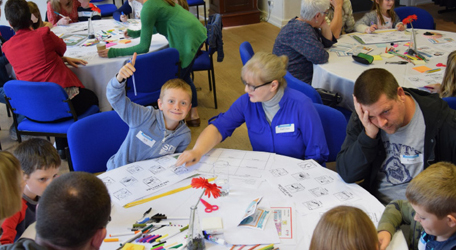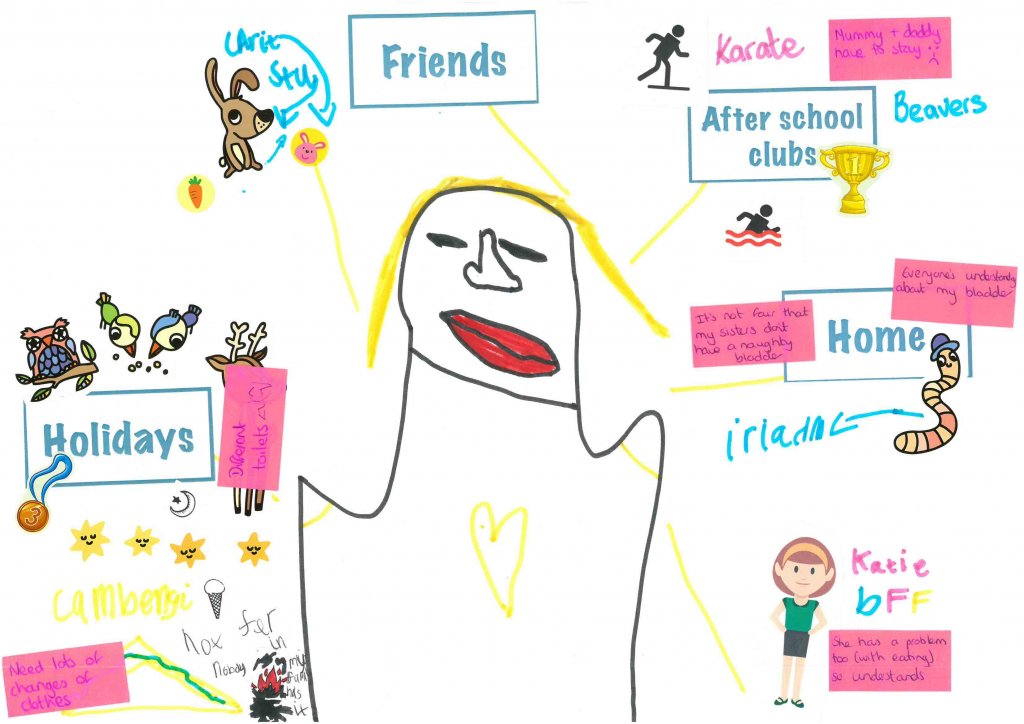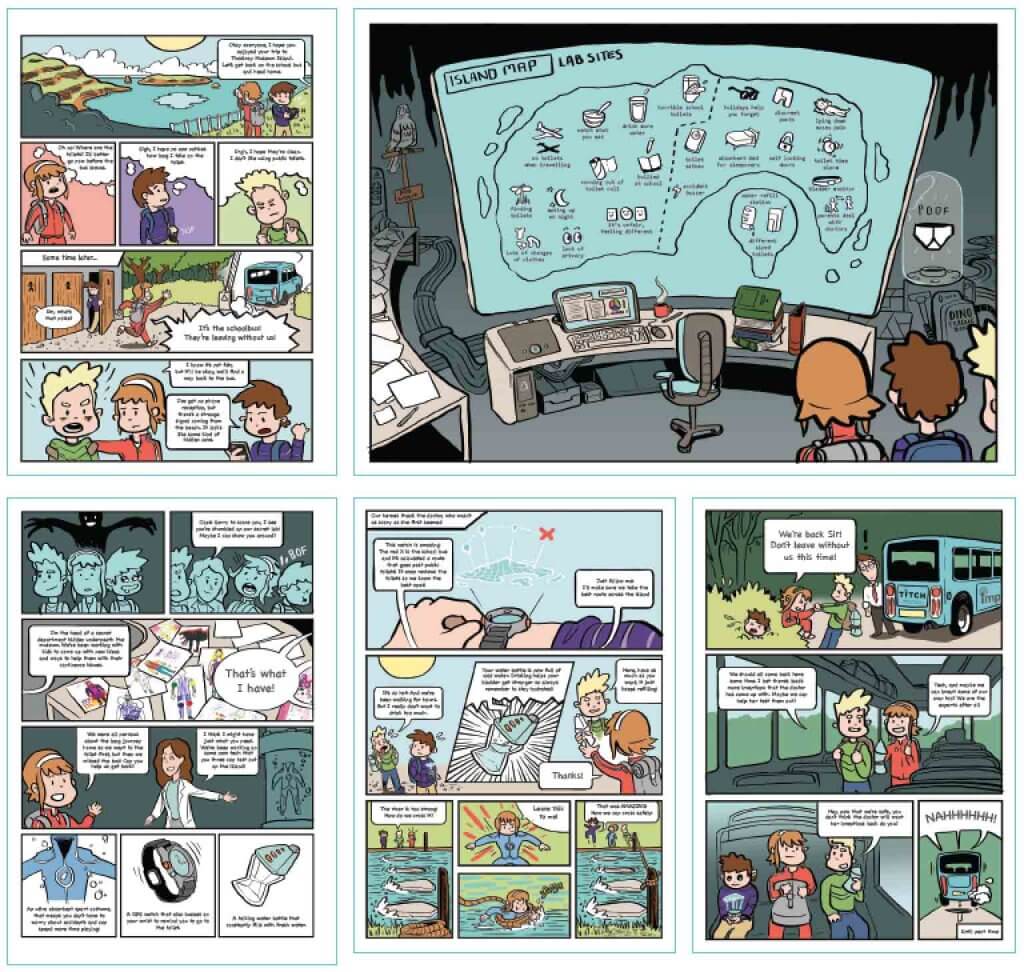This project used creative methods to engage children with continence issues, alongside their parents and/or siblings, in discussing the challenges they face in daily living and in ideating potential solutions.
Project funded through Engineering and Physical Sciences Research Council (EPSRC). Both groups are National Institute for Health Research Healthcare Technology Co-operatives (NIHR-HTC).
Partners:
Devices for Dignity (Royal Hallamshire Hospital, Sheffield);
IMPRESS (Incontinence Management & PRevention through Engineering and ScienceS)
Project Team:
Project lead – Dr Joe Langley
Researchers:
Dr Gemma Wheeler (Lab4Living); Nathaniel Mills (Devices for Dignity); Sarah King and Dr Peter Culmer (IMPRESS, Leeds); Chris Redford (Freelance Illustrator).

Approximately 900 000 children and young adults are affected by incontinence in the UK (BBC 2015), whether as a result of medical problems or issues with toilet training. Although children represent a smaller percentage of the population with continence issues, the impact upon them should not be underestimated. The effect on a child’s wellbeing at school (risk of bullying, potential lack of confidence in participating in social or sporting activities) may have lasting implications for the rest of their lives. Despite this, the effects of incontinence are not well understood and require further research.

To respond to this challenge, a partnership between Devices for Dignity and IMPRESS (Incontinence Management & PRevention through Engineering and ScienceS; funded through the EPSRC) was formed. Lab4Living researchers Joe Langley and Gemma Wheeler were invited to join the team to help design and facilitate a bespoke Family Day event, using creative methods to learn about the lived experiences and unmet needs of children living with incontinence, and their families. The aim of this workshop was to inform future innovation of relevant medical technologies in this area, to better support these families in their day to day lives.
The stakeholders were children with continence issues, their parents and siblings, healthcare professionals, engineers and researchers looking into incontinence and its effects.
A conference paper, Child-led, Creative Exploration of Paediatric Incontinence, has explored the methods and impact of this project.
A range of bespoke tools was developed in collaboration with an illustrator to creatively and collaboratively explore the challenges faced by children with incontinence issues. These tools aimed to place the young people as the experts in the rooms, reflecting on their wider life (i.e. their hobbies, friends, family) and took an asset-based approach to highlight the skills and resources they already leverage to address their personal challenges. Later, ideation activities were used to empower the families as inventors to highlight and address any unmet health needs.
“What can I say, but ‘what a team!’ I was really overwhelmed by the response from the families – the kids were fantastic and the parents engaged and obviously committed to supporting this in the long term.”
(Dr Peter Culmer, project partner at IMPRESS)
During the workshop, the illustrator visualised emerging findings on a live mural in order to demonstrate progress made through the session and to highlight the value placed on the participants’ input. Central to each of the activities was the aim to reframe a traditionally ‘taboo’ topic as something that is safe, and even fun, to explore through creative means.

A range of ‘blue sky’ ideas generated at the workshop, in response to the challenges identified, was incorporated into a comic (available at: https://tinyurl.com/ToiletTalkComic). Based on this input, two further workshops have been organised by the project partners (including Lab4Living) with children and families to develop a smart watch app to help children develop regular toileting behaviours. Early feedback has been extremely positive; we are currently seeking an industry partner to take this forward.
This first phase of funding drew to a close at the end of 2018 but the work of IMPRESS continues via the Surgical Medtech Cooperative under their Colorectal Theme.
Resources
Related research on Sheffield Hallam University’s Research Archive will be posted here
 to top
to top
